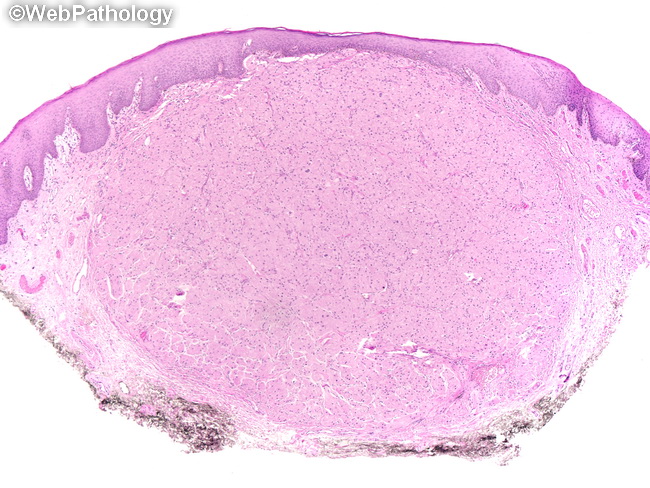Granular Cell Tumor : Intro & Genetics


Comments:
Granular cell tumor (GCT) is a benign neural tumor characterized by polygonal cells with abundant granular eosinophilic cytoplasm. It presents as small, painless nodule in the dermis, subcutis, or mucosal surfaces. Intraoral sites (tongue, oral mucosa, hard palate) are frequently involved. Less common sites include deep soft tissues and visceral organs (upper aerodigestive tract, vulva, uterus, breast, salivary glands, pancreas, urinary bladder, and brain). Most patients are adults with female:male ratio of 2:1. In 10% to 15% of cases, there are multiple tumors. Some patients with multiple GCT have LEOPARD syndrome and mutations in the PTPN11 gene. Congenital granular cell tumor (congenital epulis) involving gingiva of infants resembles adult GCT morphologically but is a completely different entity. PTPN11 gene encodes for tyrosine-protein phosphatase non-receptor type 11 - a member of the protein tyrosine phosphatase family (PTP family). PTP are signaling molecules that are widely expressed in most tissues and play a key regulatory role in cellular functions such as metabolic control, mitogenic activation, transcriptional regulation and cell migration. Mutations in PTPN11 are associated with Noonan Syndrome and LEOPARD Syndrome and predispose to a variety of cancers.


